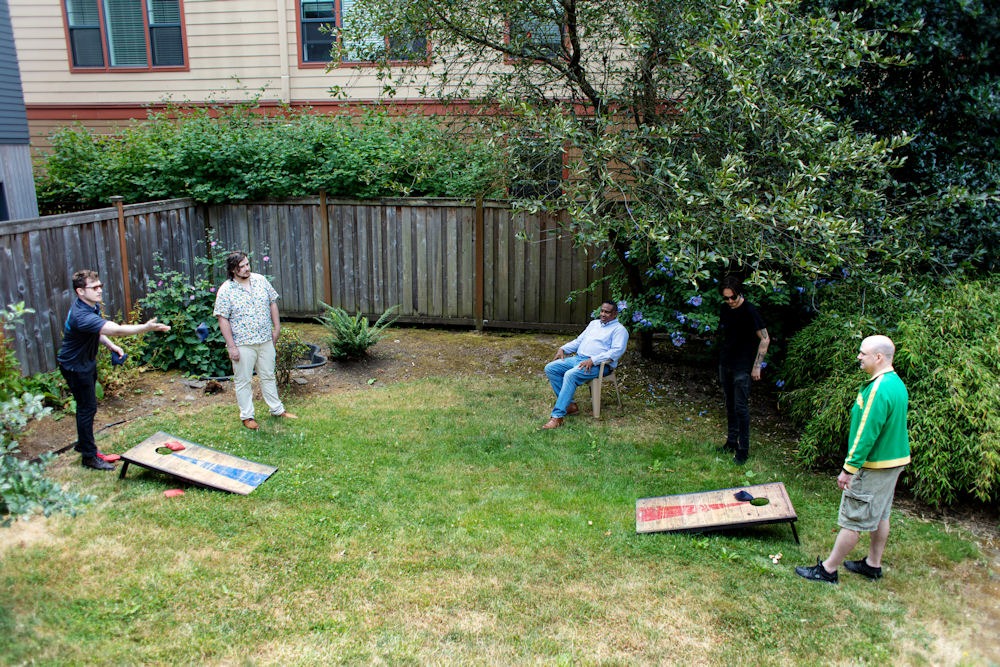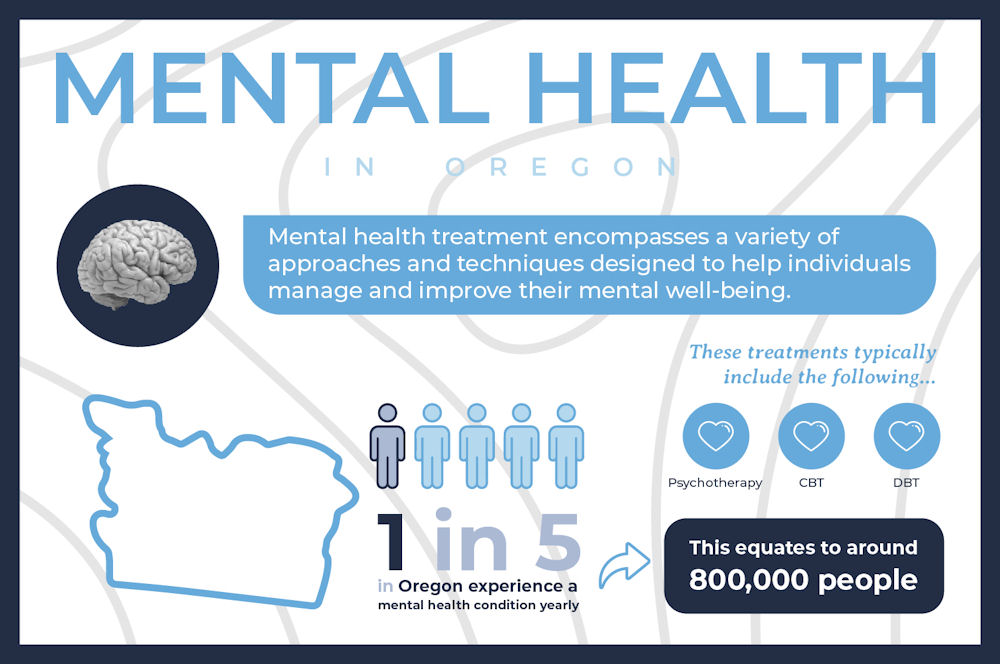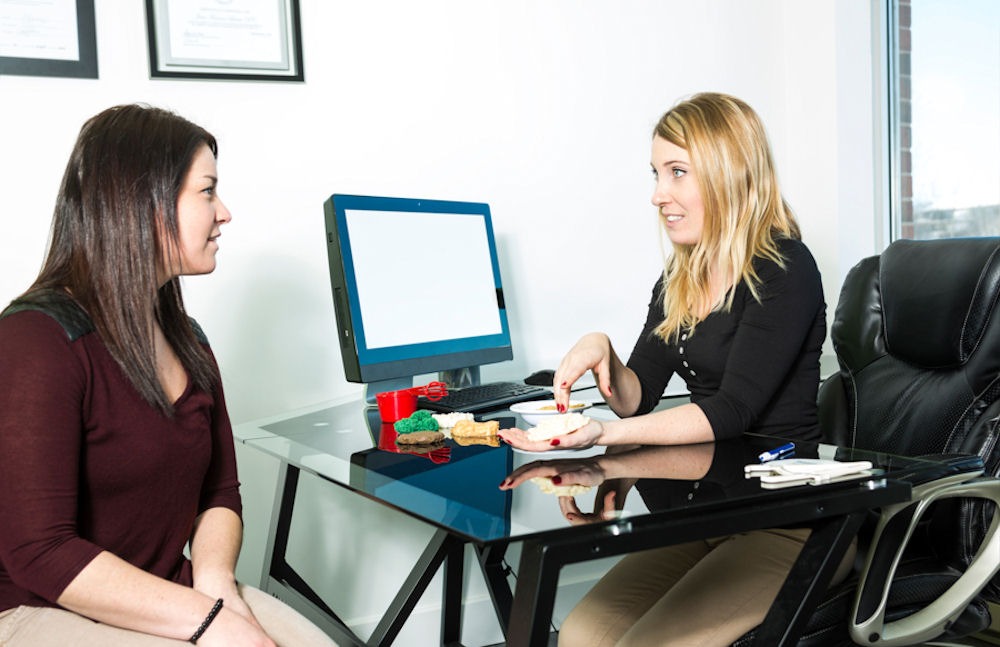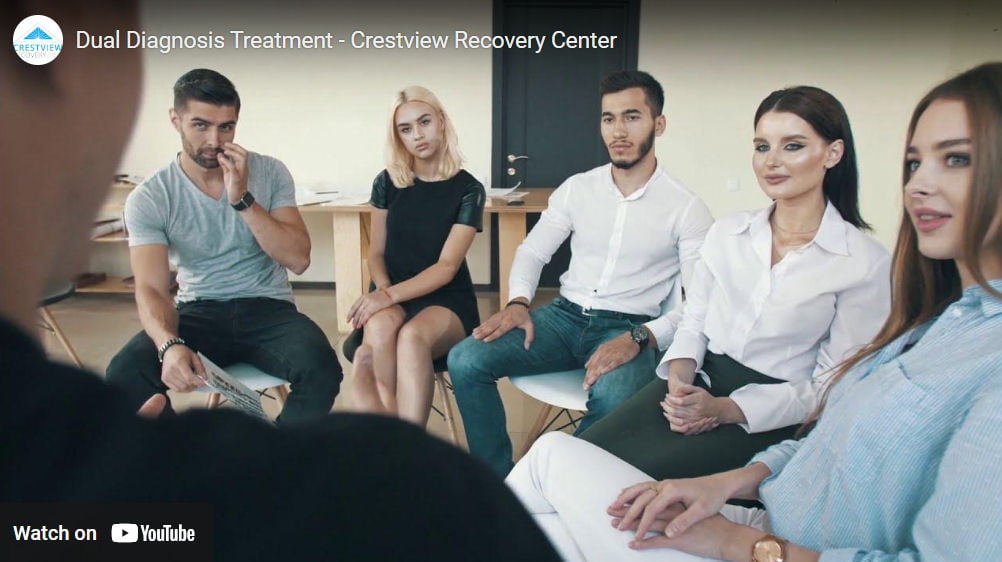If mental illness is hindering you from enjoying experiences and negatively affecting your day-to-day life, our team of therapists and counselors at Crestview Recovery offers a fresh, clinical approach to treating anxiety, depression, PTSD, and more. Learn how our mental health treatment in Portland, Oregon can help you.



Healing Begins Here

GET MENTAL HEALTH TREATMENT IN PORTLAND, OR
Crestview Recovery is a leading provider in Multnomah County and one of the only facilities in the area that is licensed to give primary mental health treatment. Our team can help you overcome mental illness and achieve healthy living.
We offer a variety of therapies in our recovery programs, including:
Individual Therapy
This personalized therapy supports mental health by providing a safe space for clients to explore their thoughts and feelings. This helps them develop coping strategies for personal challenges.
Group Therapy
By sharing experiences and receiving feedback from others in a welcoming environment, group therapy helps individuals gain insights and build social connections, enhancing their mental well-being.
Family Therapy
Family therapy addresses and resolves family conflicts, enhances communication, and fosters stronger, healthier family dynamics.

Cognitive-Behavioral Therapy
CBT supports mental health by helping individuals identify and change negative thought patterns and behaviors, leading to improved emotional regulation and problem-solving skills.
Dialectical Behavior Therapy
DBT teaches skills to manage intense emotions, reduce self-destructive behaviors, and improve interpersonal relationships through a blend of cognitive-behavioral therapeutic techniques and mindfulness.
Trauma Therapy
Trauma therapy in Portland, OR, provides techniques to process and heal from traumatic experiences, helping individuals regain a sense of safety and control in their lives.
If you do need counseling for substance use disorder, learn about our addiction therapy services in Portland, Oregon

TYPES OF OUTPATIENT PROGRAMS
PHPs offer a high level of care without requiring inpatient care. These programs typically run for several hours a day, multiple days per week, providing comprehensive support through individual therapy, group therapy, and specialized treatments like dialectical behavior therapy. PHP is ideal for those experiencing severe depression, treatment-resistant depression, self-harm tendencies, or eating disorders such as anorexia nervosa. Patients receive structured mental health treatment while practicing coping skills and relapse prevention in their home environment.
IOPs provide a step-down level of care from PHPs or residential treatment, offering therapy sessions a few times per week. These programs focus on developing new skills for long-term recovery while addressing mental health disorders, addiction, and trauma. IOPs integrate a holistic approach, including psychiatry, individual therapy, and group therapy, to create a safe space for healing. Programs like Seeking Safety help individuals process symptoms, strengthen resilience, and receive support from a dedicated treatment team.
Both PHP and IOP provide essential outpatient services, giving adults access to high-quality care without the need for full-time residential treatment. By blending structure with flexibility, these programs empower individuals to recover in a supportive environment while staying connected to their community and families.
MENTAL HEALTH DISORDERS WE TREAT
Anxiety disorders are among the most common mental health conditions, causing persistent worry, fear, or panic that can disrupt daily life. Effective treatment combines psychiatric care, counseling, and holistic approaches to promote lasting recovery.
In Portland, Oregon, outpatient services provide a safe, comforting environment tailored to individual needs. A dedicated team of doctors, nurses, and counselors helps patients address anxiety’s root causes, develop coping skills, and regain control of their lives.
Depression is a medical condition causing a person to experience extreme sadness or loss of interest in previously enjoyed activities. Depression affects an individual’s day-to-day functioning. Most people with depression benefit from treatment involving a combination of psychotherapy and medication, but determining the right combination takes time. Depression can result from many potential causes. Common risk factors include genetics, trauma, family history of depression, isolation, and other health problems.
Our depression treatment center in Portland, Oregon can help you or a loved one with depression. Don’t wait to seek professional help!
Post-Traumatic Stress Disorder (PTSD) can develop after experiencing or witnessing trauma, such as natural disasters, accidents, combat, or assault. It can affect anyone, disrupting daily life with lasting emotional and psychological effects.
PTSD arises when the brain struggles to process intense fear or helplessness, leading to changes in thoughts, emotions, and reactions. Treatment, including therapy and medication, can help manage symptoms and improve well-being. Seeking professional help is essential for recovery.
Post-Traumatic Stress Disorder (PTSD) can develop after experiencing or witnessing trauma, such as natural disasters, accidents, combat, or assault. It can affect anyone, disrupting daily life with lasting emotional and psychological effects.
PTSD arises when the brain struggles to process intense fear or helplessness, leading to changes in thoughts, emotions, and reactions. Treatment, including therapy and medication, can help manage symptoms and improve well-being. Seeking professional help is essential for recovery.
Bipolar disorder is a mood disorder marked by episodes of mania or hypomania alternating with depression. Manic episodes involve heightened energy, activity, and optimism, while hypomania is a milder form. Episodes can last hours to months, significantly impacting daily life.
With the right treatment, bipolar disorder can be managed. At Crestview Recovery, our specialists provide expert care, whether bipolar is the primary concern or co-occurs with addiction.
- Bipolar I: At least one manic episode lasting a week or requiring hospitalization, often with severe depressive episodes.
- Bipolar II: Patterns of depressive and hypomanic episodes, which are less intense than full mania.
- Cyclothymia: Periods of hypomanic and depressive symptoms lasting at least two years but not meeting full episode criteria.
Effective treatment, including therapy and medication, helps individuals regain stability and improve well-being.
Our OCD treatment in Portland, Oregon, focuses on evidence-based therapies and medication-assisted treatment. These methods help people confront their fears, resist compulsive behaviors, and build healthier coping strategies. For those with both OCD and substance use challenges, we provide integrated care that addresses both conditions at the same time, ensuring long-term recovery.
- ANXIETY
Anxiety disorders are among the most common mental health conditions, causing persistent worry, fear, or panic that can disrupt daily life. Effective treatment combines psychiatric care, counseling, and holistic approaches to promote lasting recovery.
In Portland, Oregon, outpatient services provide a safe, comforting environment tailored to individual needs. A dedicated team of doctors, nurses, and counselors helps patients address anxiety’s root causes, develop coping skills, and regain control of their lives.
- DEPRESSION
Depression is a medical condition causing a person to experience extreme sadness or loss of interest in previously enjoyed activities. Depression affects an individual’s day-to-day functioning. Most people with depression benefit from treatment involving a combination of psychotherapy and medication, but determining the right combination takes time. Depression can result from many potential causes. Common risk factors include genetics, trauma, family history of depression, isolation, and other health problems.
Our depression treatment center in Portland, Oregon can help you or a loved one with depression. Don’t wait to seek professional help!
- PTSD
Post-Traumatic Stress Disorder (PTSD) can develop after experiencing or witnessing trauma, such as natural disasters, accidents, combat, or assault. It can affect anyone, disrupting daily life with lasting emotional and psychological effects.
PTSD arises when the brain struggles to process intense fear or helplessness, leading to changes in thoughts, emotions, and reactions. Treatment, including therapy and medication, can help manage symptoms and improve well-being. Seeking professional help is essential for recovery.
- PANIC DISORDER
Post-Traumatic Stress Disorder (PTSD) can develop after experiencing or witnessing trauma, such as natural disasters, accidents, combat, or assault. It can affect anyone, disrupting daily life with lasting emotional and psychological effects.
PTSD arises when the brain struggles to process intense fear or helplessness, leading to changes in thoughts, emotions, and reactions. Treatment, including therapy and medication, can help manage symptoms and improve well-being. Seeking professional help is essential for recovery.
- BIPOLAR DISORDER
Bipolar disorder is a mood disorder marked by episodes of mania or hypomania alternating with depression. Manic episodes involve heightened energy, activity, and optimism, while hypomania is a milder form. Episodes can last hours to months, significantly impacting daily life.
With the right treatment, bipolar disorder can be managed. At Crestview Recovery, our specialists provide expert care, whether bipolar is the primary concern or co-occurs with addiction.
- Bipolar I: At least one manic episode lasting a week or requiring hospitalization, often with severe depressive episodes.
- Bipolar II: Patterns of depressive and hypomanic episodes, which are less intense than full mania.
- Cyclothymia: Periods of hypomanic and depressive symptoms lasting at least two years but not meeting full episode criteria.
Effective treatment, including therapy and medication, helps individuals regain stability and improve well-being.
- OCD
Our OCD treatment in Portland, Oregon, focuses on evidence-based therapies and medication-assisted treatment. These methods help people confront their fears, resist compulsive behaviors, and build healthier coping strategies. For those with both OCD and substance use challenges, we provide integrated care that addresses both conditions at the same time, ensuring long-term recovery.
Outpatient Vs Residential Treatment
Outpatient programs allow patients to receive high-quality care while maintaining their daily life responsibilities. Intensive outpatient programs (IOPs) and day treatment options provide structured therapy sessions, including individual therapy, group therapy, and dialectical behavior therapy. These programs are particularly effective for treating mental health disorders such as depression, anxiety, trauma, and eating disorders like anorexia nervosa. Outpatient services also support those with co-occurring disorders, including substance abuse and treatment-resistant depression, by offering a holistic approach to recovery.
A key advantage of outpatient treatment is access to a strong support system within the community. Patients work closely with a dedicated treatment team of psychiatrists, counselors, and clinicians, who help them develop coping skills, practice relapse prevention, and build new strategies for long-term recovery. Programs like Seeking Safety create a safe and supportive environment where individuals can heal without stepping away from their families and responsibilities.
Residential treatment, or inpatient care, provides a highly structured setting for individuals facing severe depression, self-harm, or crisis situations. While it offers 24/7 supervision and a safe space for recovery, it can be more disruptive to daily life. Residential programs are often best suited for those who need immediate stabilization before transitioning to outpatient care.
For many, outpatient treatment offers a balanced, effective path to healing—blending comprehensive support with the flexibility to continue work, family life, and community engagement.
WHAT IS DUAL DIAGNOSIS TREATMENT?
- Processing trauma
- Medication management
- Conflict resolution
- Managing anxiety
- Moving through depression
- Balancing moods
- Developing self-awareness
- Building positive relationships
Our treatment programs at Crestview provide education, support, and comfort to our clients throughout the treatment process. Our holistic approach to treatment helps clients find sanctuary from mental illness in a safe environment.

Find a Therapist
Join us at Crestview for mental health services from qualified psychotherapists and counselors. Using constructive, progress-centered methods, a counselor can help you work through your struggles. You can learn helpful coping skills for dealing with stress in the future. Therapy can also provide you with a post-treatment mental healthcare plan. You can reach out to us to learn more about what to expect in therapy sessions and what to bring to outpatient mental health treatment.

Call Crestview Recovery for Help with Mental Health
If you’re ready to start on a new path, our mental health professionals at Crestview Recovery are eager to help. Let the programs at our Portland behavioral health and addiction treatment center guide you toward a sober and independent new start.
Contact us today to find a therapist or counselor and learn more about our safe and supportive environment. Don’t hesitate to get the help you deserve!



























